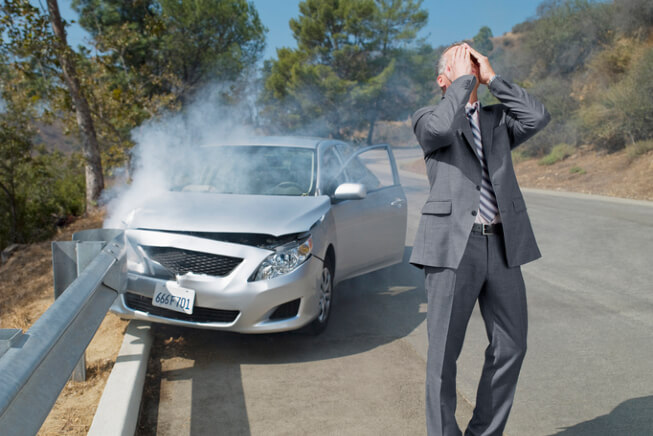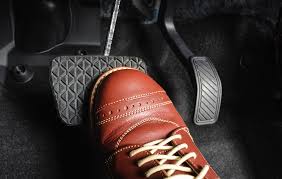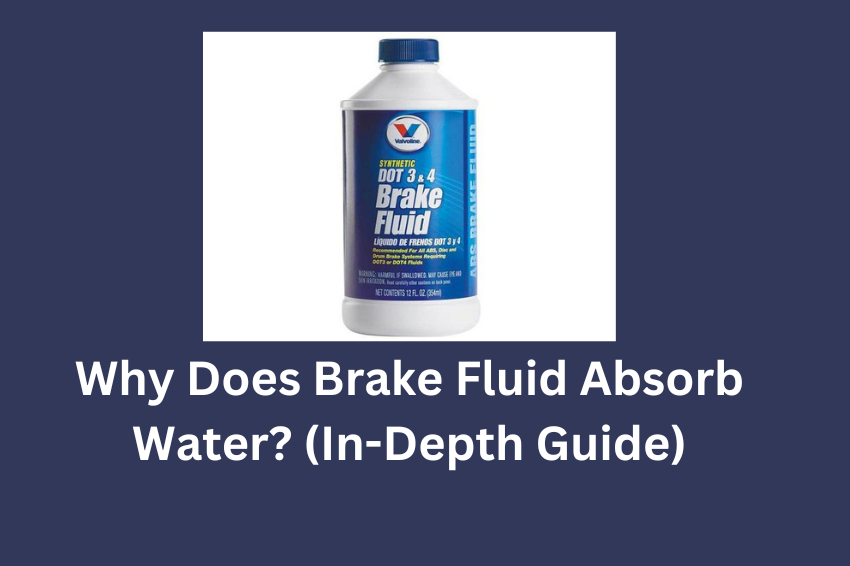Brake fluid absorbs moisture (hygroscopic) due to its glycol-ether chemical base. This attracts and retains water vapor from the surrounding air. Over time, accumulated water lowers the boiling point of the fluid, reducing braking performance and increasing safety risks.
What Happens When Brake Fluid Gets Water In It?
One of the biggest issues is the effect on the boiling point of the brake fluid.
Fresh brake fluid has a very high boiling point, which is essential for safe braking.
However, as water gets absorbed, the boiling point of the fluid drops.
This can be dangerous because, during heavy braking, the brakes generate a lot of heat.
If the boiling point is too low, the brake fluid can start to boil.
Boiling creates bubbles in the fluid, and unlike liquid, these bubbles can’t compress, which leads to a condition called vapor lock, where the brakes become spongy and unresponsive when you press the pedal.
In extreme cases, it can even lead to complete brake failure.

Water contamination doesn’t just affect boiling point, it can also lead to corrosion inside the brake system.
This is because water promotes rust on metal components like brake calipers, pistons, and the master cylinder.
Over time, this corrosion can weaken and damage these parts, further compromising braking performance.
Another sign of water contamination is a spongy brake pedal.

This happens because the boiling bubbles can create a mushy feeling when you press the pedal, making it harder to control braking pressure.
Long story short, water in your brake fluid is a safety risk.
If you suspect water contamination, it’s important to consult a mechanic as soon as possible.
They can inspect your brake system and recommend a brake fluid flush if necessary.
Does Brake Fluid Absorb Moisture From The Air?
Yes, brake fluid does absorb moisture from the air.
This is because most brake fluids are made with a glycol-ether base, which has a natural tendency to attract and hold water molecules.
It’s kind of like a magnet for tiny water particles floating around in the air.
This characteristic of attracting moisture is called being hygroscopic.
While it might seem like a minor detail, it’s quite important for your brakes.
Here’s why:
Brake fluid needs a very high boiling point to function properly.
When water gets absorbed into the fluid, it lowers that boiling point.
This can be a problem because your brakes generate a lot of heat during use.
If the boiling point gets too low, the brake fluid can start to boil.
Boiling creates bubbles, and bubbles can’t compress like liquid.
This leads to a condition called vapor lock, which makes your brakes feel spongy and unresponsive when you press the pedal.
While a little moisture won’t cause immediate problems, the longer brake fluid is exposed to air, the more moisture it will absorb.
Over time, this can significantly reduce the boiling point and increase the risk of vapor lock or even brake failure.
So, what does this mean for you? It means that brake fluid isn’t a “set it and forget it” kind of fluid.
Over time, it will absorb moisture and need to be replaced to maintain safe braking performance.
There are recommendations from your car manufacturer on how often to change your brake fluid, but typically it’s every 2-3 years or 30,000 to 50,000 miles.
Why Does Brake Fluid Absorb Water?: FAQ
Warning signs of water contamination in brake fluid include a spongy brake pedal, an unusual burning smell during braking, and a visually cloudy or discolored fluid reservoir. However, the most reliable method is a professional inspection or testing to determine the boiling point, which is significantly lowered by water content.
Topping off brake fluid only adds fresh fluid to the reservoir, not replacing contaminated fluid in the system. For complete moisture removal and optimal performance, a brake fluid flush is recommended by manufacturers. Consider a flush if the fluid appears dirty or your car is due for scheduled maintenance.
Completely preventing moisture is difficult, but practices like using only sealed, fresh brake fluid and minimizing air exposure during topping up can slow down water absorption. Tightly closing the reservoir cap after topping up and storing leftover fluid in airtight containers is recommended.
